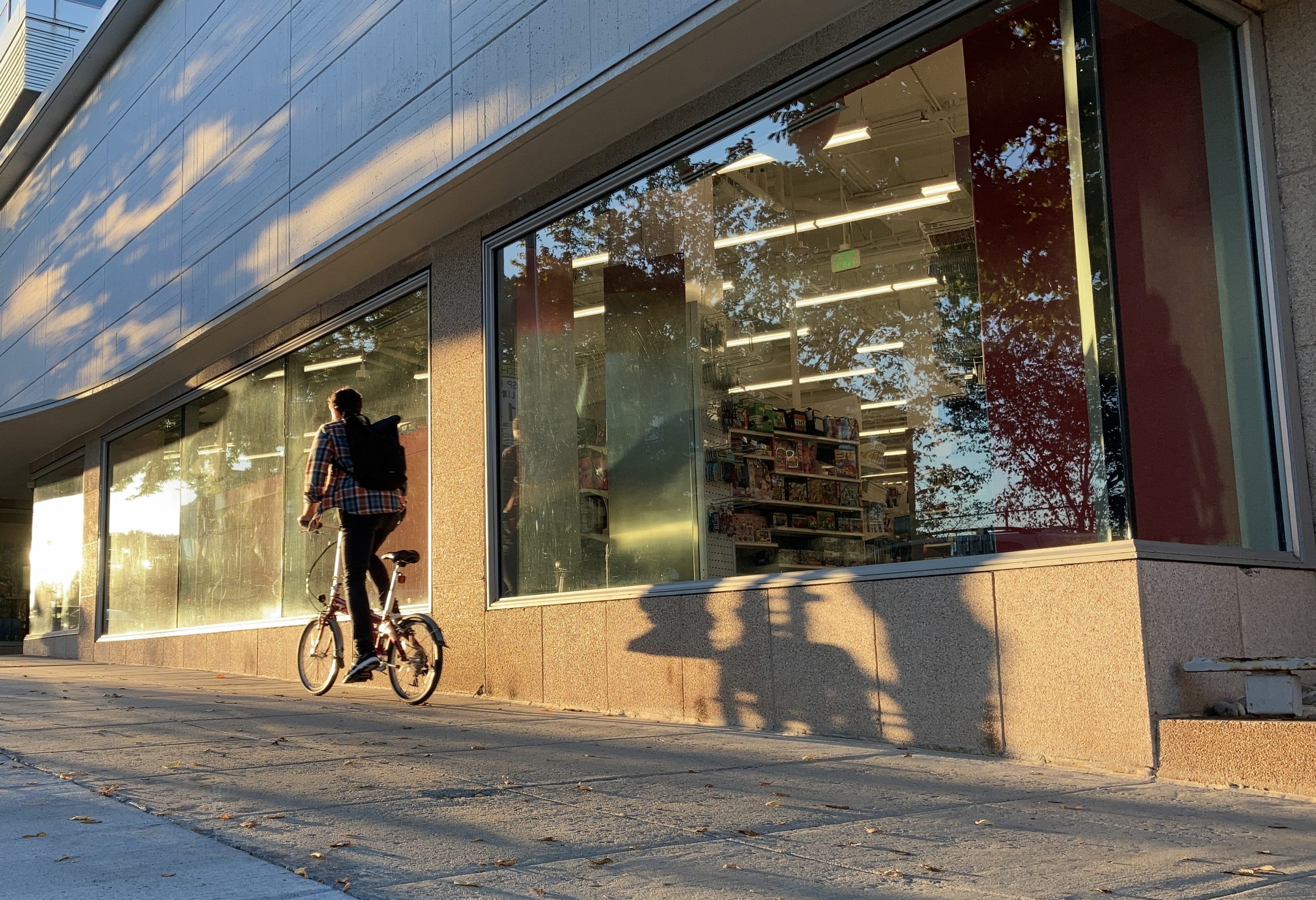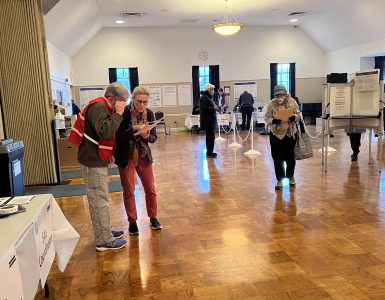Bicycle boulevards. A new Capital Bikeshare station. Expansions to the two existing bike-share stations near campus.
Local bicyclists say that a 10 year-plan for bike infrastructure doesn’t adequately serve the thousands of students, faculty and staff who commute to American University — and the neighborhoods around the university.
Although the university says that bike-share stations near AU’s main campus that are a part of Capital Bikeshare are “well-used” by students, staff and faculty, students are left under-served by the plan to build just one new station near campus and expand the others, according to Tom Quinn, an ANC3E commissioner.
‘Virtually no protected infrastructure’
The neighborhoods around the university aren’t especially bike-friendly, bike advocates say, and AU — with its considerable voice — could be pushing for more.
“At the pace we’re going, my daughter — who’s in third grade right now — is still not going to have a safe route to bike to the middle school that she would go to throughout her time there,” Ward Three Bicycle Advocates founder Josh Rising said. “So, within six years, [the District Department of Transportation] is not on pace to implement a safe way for kids to bike to a neighborhood middle school.”
“Unfortunately, this part of the city has virtually no protected infrastructure that has been built for bicycles,” Rising also said. “So that means people who do want to bike either need to bike on the sidewalk, where there may be some conflicts with pedestrians, or they’re forced to bike in the road and mix with traffic.”
A year ago, the District Department of Transportation (DDOT) pledged to triple the number of protected bike lanes in the District by adding 20 miles of bike lanes by 2022.
“The city has laid out plans previously and not executed on them,” Rising said. “So, this is certainly better than what exists right now. But even after adding those 20 miles, that’s not going to be sufficient infrastructure.”
Rising said that adding bike infrastructure in Ward Three, where American University is located, has “really been a challenge.”
“It’s clear that AU has been a real leader in trying to think about sustainability and the role of the university in addressing issues such as climate change,” Rising said. “And this [plan] is a very important way for the university to continue engaging on that.”

But Rising says that the transportation report, which AU unveiled nearly a month ago, doesn’t do enough.
“Once somebody steps foot off the AU campus, if they’re living in the greater Tenleytown area, they have to take other roads in order to get to American University,” he said. Rising said that a more comprehensive plan could have mapped out the most densely populated areas of commuters to determine where more bike infrastructure should be implemented.
“We do know that many students live in…multiple apartment buildings along Mass. Ave. but I do not believe that we mapped where all students, faculty and staff live,” Ed Fisher, AU’s assistant vice president for community and government relations, told The Wash in an email.
Pushing for Capital Bikeshare
Quinn told The Wash that he has advocated for AU to push for two additional bike share stations on campus, so students don’t have to walk across campus to pick up bikes.
“As noted in the [transportation review], the university is working with DDOT and the members of the community to explore expanding Capital Bikeshare near campus,” Fisher told The Wash in an email.
“The [transportation review] was developed in close coordination with the AU Neighborhood Partnership Transportation and Parking Working group, and as a result, has been shaped by significant community input gathered over the past several months through AU’s collaborative planning process,” Fisher wrote.
American University’s geography is not irrelevant in the conversation about bicycle infrastructure. The university’s main campus is located near Tenleytown and Fort Reno, the highest point in Washington. That presents challenges for bicyclists using traditional bikes, according to Capital Bikeshare.
“Riders are more likely to travel from uphill neighborhoods like Woodley Park and Columbia Heights to downhill neighborhoods like Dupont or Logan Circle than the reverse,” a Capital Bikeshare report released earlier this year noted. “The introduction of electric-assist bicycles could lessen this imbalance by making uphill trips easier on riders.”
Capital Bikeshare plans from 2016 show that the development of a Capital Bikeshare station at 48th St. NW and Massachusetts Ave. NW was “scheduled to be installed in FY2016, or as soon as site-specific issues are addressed.” However, that station has not yet been built.
Capital Bikeshare and the DDOT did not respond to a detailed list of questions about the network’s Ward Three expansion plans and the Capital Bikeshare station at 48th St. NW and Massachusetts Ave. NW.
Replacing a garden with buildings
Transportation aside, there are other components of American University’s Campus Plan that are controversial.
The plan outlines an “athletic, residential, and campus life village” tucked away in the northwest corner of campus currently made up of tennis courts, basketball courts and a community garden.
Jerri Husch, an adjunct professorial lecturer in AU’s sociology department who tends to the garden and incorporates it into her classes, told The Wash that she understands the rationale for replacing the garden with the buildings.
“I’m over getting upset,” Husch told The Wash. Emphasizing that she is focused on experiential education, Husch said that she hopes that members of the AU community “can see their relationship to the planet” as she continues to use spaces on campus to teach.














Add comment